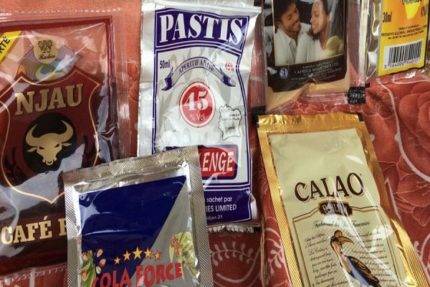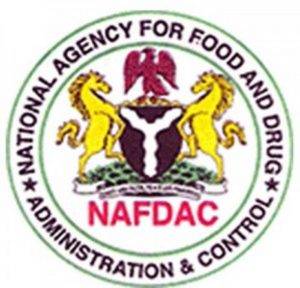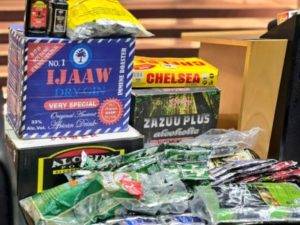In a significant move aimed at safeguarding the health of the nation’s youth, the National Agency for Food and Drug Administration and Control (NAFDAC) has officially banned alcoholic beverages produced in sachets of less than 200ml. The ban, effective from February 1, 2024, comes after a five-year transition period initiated in 2018, which sought to gradually phase out the production of these pocket-sized alcoholic drinks. NAFDAC’s Director-General, Prof Mojisola Adeyeye, clarified in a press conference held in Abuja on Monday, February 5, that this decision was not abrupt but a result of a well-considered multilateral committee consensus.
The phased approach, according to Prof Adeyeye, was designed to reduce production by 50% by 2020, with a complete ban taking effect on January 31, 2024. To enforce this measure, NAFDAC has ensured that no renewal licenses extending beyond January 2024 were issued to manufacturers of these products. The director-general emphasized that the primary motivation behind the ban was to protect underage children who easily fell prey to these pocket-friendly and easily accessible alcoholic beverages, with potentially severe consequences for their health in the long run.
Multilateral Committee and Regulatory Compliance: NAFDAC’s Thoughtful Strategy
The decision to ban alcoholic beverages in sachets did not happen overnight; it was the result of a well-coordinated effort by a multilateral committee. Prof Adeyeye highlighted that the committee recognized the need for a phased approach to tackle the issue, prioritizing the reduction of production by 50% by 2020 before implementing a complete ban in 2024. This approach allowed manufacturers sufficient time to adapt to the changes and transition their production practices accordingly.

NAFDAC’s commitment to regulatory compliance is evident in its refusal to grant renewal licenses beyond January 2024 to producers of these pocket-sized alcoholic drinks. This strategic move ensures that all manufacturers are held accountable to the established timeline, underlining the agency’s dedication to upholding public health and safety standards. The phased approach not only considers the economic implications for manufacturers but also demonstrates a thoughtful strategy to address the issue without causing undue disruption to the industry.
Protecting Children from Negative Consequences: NAFDAC’s Rationale for the Ban
The heart of NAFDAC’s decision lies in its commitment to protecting underage children from the negative consequences associated with consuming alcoholic beverages in small sachets. Prof Adeyeye pointed out that these products, due to their pocket-friendly sizes, affordability, and accessibility, posed a significant risk to children. The ban, therefore, serves as a preventive measure to curb the potential long-term health effects on the younger population.

By eliminating alcoholic beverages in sachets, NAFDAC aims to disrupt the cycle where children are enticed by the packaging only to face health consequences later in life. This rationale aligns with the agency’s broader mission to ensure the safety and well-being of the Nigerian population, particularly the vulnerable demographic of underage individuals. The ban underscores the importance of proactive regulatory measures to address public health concerns and build a safer environment for future generations. ::NAFDAC Implements Ban on Small-Sized Alcoholic Beverages:
A Move for Public Health
In a groundbreaking decision, the National Agency for Food and Drug Administration and Control (NAFDAC) has officially banned the production and sale of alcoholic beverages in sachets less than 200ml. This bold move comes as a result of a thorough evaluation conducted by a high-powered committee comprising representatives from the Federal Ministry of Health, NAFDAC, the Federal Competition and Consumer Protection Commission (FCCPC), and key industry players, including the Association of Food, Beverages and Tobacco Employers (AFBTE) and the Distillers and Blenders Association of Nigeria (DIBAN). This committee, formed in December 2018, worked collectively to address concerns related to the consumption of small-sized alcoholic products in the country.

Commitment to Phased Reduction: Industry Players Pledge Cooperation
The decision to ban alcoholic beverages in sachets is not only a regulatory measure but also a commitment made by producers in response to the committee’s recommendations. Producers, including representatives from AFBTE and DIBAN, have agreed to initiate a gradual reduction in production, starting with a 5 percent decrease effective from 31st January 2022.
This reduction is part of a broader strategy to completely phase out small-sized alcoholic sachets from the market by 31st January 2024. This collaborative effort between regulatory bodies and industry stakeholders emphasizes the significance of addressing public health concerns associated with the consumption of easily accessible, small-volume alcoholic products. The phased reduction aims to mitigate the potential adverse effects on consumers while providing the industry with a reasonable timeline for the necessary adjustments
Table of Contents
Discover more from OGM News NG
Subscribe to get the latest posts sent to your email.














